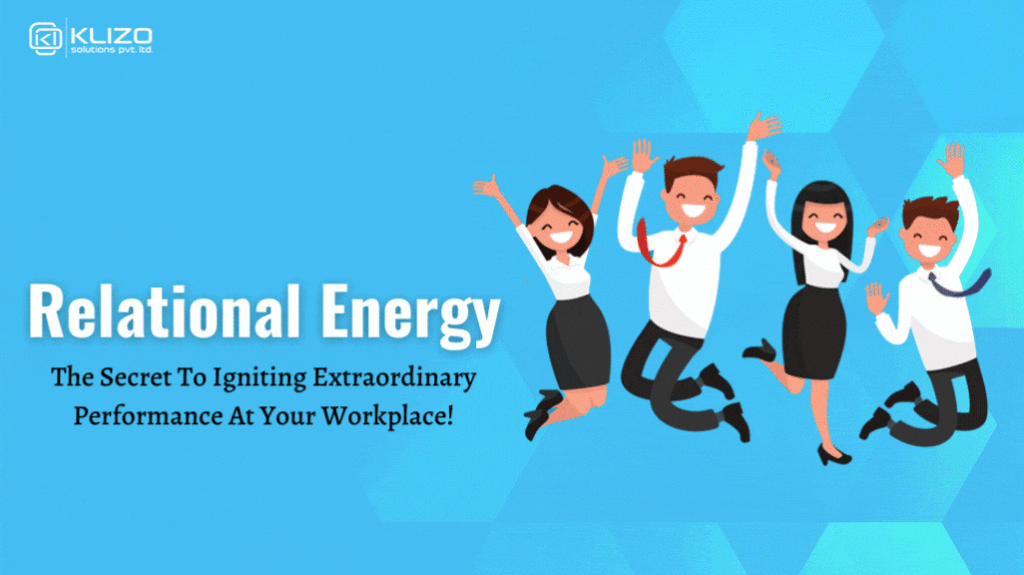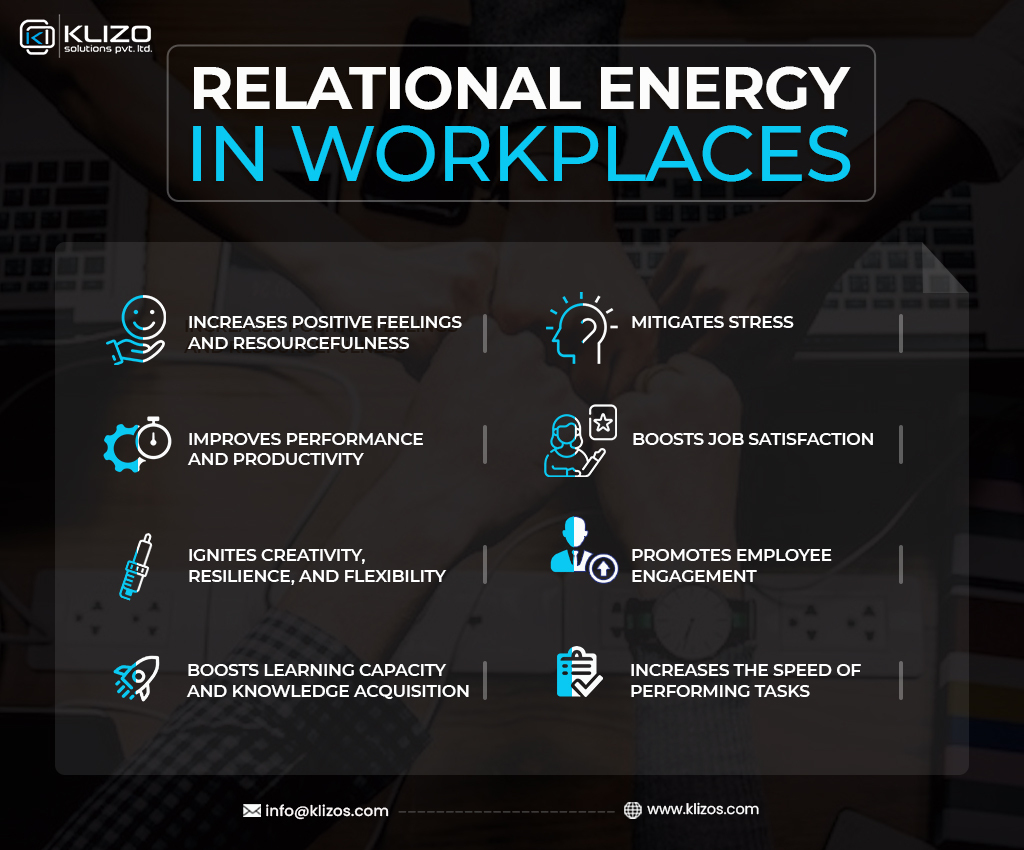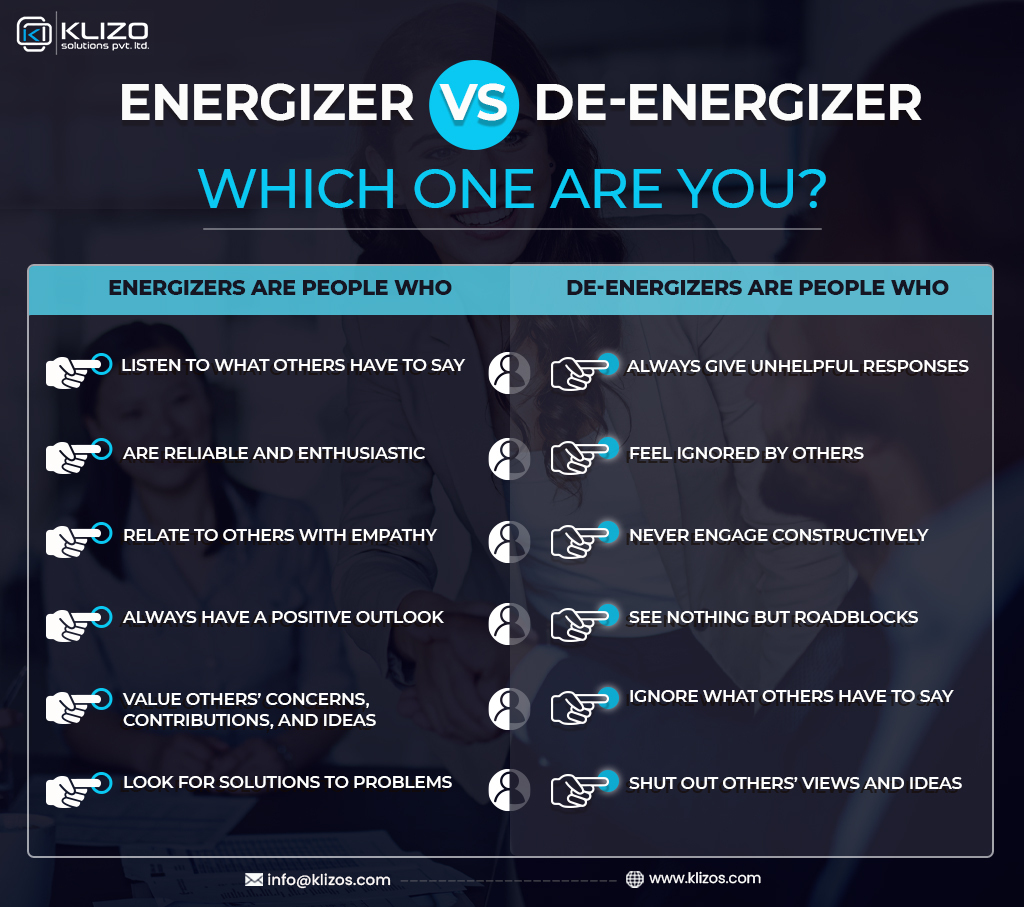


Have you ever felt super energized and motivated after talking to someone? You may not have realized it, but that was relational energy at play! And in today’s workplaces, this energy is one major indicator of success!
Given the hours we spend at work every day, the time at the workplace must be a happy experience. Especially, when it has been proved that positive energy in the workplace is super contagious and necessary for improved performance, employee engagement, and resilience.
According to Kim S. Cameron, an expert on positive relational energy, mapping the networks of relational energy can be more effective for organizations to become successful than mapping the networks of influence or information. Read on to know more!
What is relational energy at work? Well, it is a new concept that refers to the positive energy that helps people flourish as individuals and in organizations. It is a positive feeling and a sense of increased resourcefulness that one experiences as an instant result of interacting with someone.

Generated through gratitude, compassion, trustworthiness, kindness, and forgiveness, it is an exchange between people that enthuses, renews, motivates, and uplifts those coming in contact with it. In organizations, it is the increase of energy and positive feelings as a result of interacting with others.
Various studies have shown how positive energy plays a significant role in improving and increasing different attributes of an individual in a workplace, such as performance, resourcefulness, creativity, the capacity to learn, etc. As per one report, positive interactions give the people at a workplace the much-needed energy boost, crucial for improved performance and better knowledge acquisition.
Two more studies performed in 2016 have found that positive energy not just boosts productivity but also reduces stress, boosts job satisfaction, and increases employee engagement and the speed of carrying out tasks.
You see people in workplaces invest their mental and emotional resources in their daily interactions with others. And since both, negative and positive emotions, can spread virally, it is crucial to make the daily interactions as positive as possible. Hence, maximizing the transfer of positive relational energy at work in the form of mutually satisfying workplace interactions should be a priority!
The flow of relational energy can benefit everyone in a workplace and boost the overall performance and growth of the organization. Experts have observed that transferring positive energy to fellow employees has significantly increased their job engagement and resulted in better performance results.
Energy has always been a part of our body of knowledge for organizational success and culture. But it has never been studied extensively until recently.
Even today, the total number of research papers on relational energy is not huge. But it is increasingly turning into an area of interest, especially in the field of organizational research. The recent studies on relational energy have further shown how the positive energy produced by one can impact positively on others and motivate them at work.
Reports suggest that the energy levels of individuals are contagious. For example, a team with negative energy is likely to perform worse than a team with positive energy leadership.

Positive relational energy either gets created or depleted in every interaction or social encounter. When it is created, it makes people feel good and dramatically increases their productivity.
You must have come across such people who make a room glow as they enter it. Their interactions make everyone around energized, inspired, connected, and enthused. These incandescent people are the energizers who help others, show empathy, and are always enthusiastic and solution-focused.
People on the top or leaders determining the culture or strategies of an organization are not necessarily the energizers just because they are in the top positions. When someone influences others in the workplace to engage, enthuse and become eager and willing to make efforts to perform better while engaging in his work, that person becomes the energizer.

Similarly, on the other hand, some people drain our energy instead of boosting our sense of resourcefulness and positivity. These people are known as the de-energizers. They deplete the positive energy and leave people feeling diminished, uninspired, and demoralized. They sap your energy every time you interact with them.
So, know whether you are with the energizers or not. Map the people you most interact with in your workplace and ask yourself, do they give you positive energy? Or is it that they demotivate you and make you feel down? If so, think about what changes you can introduce in your workplace to boost relational energy flow!
For decades we have known how charisma can make an individual dominate his social group and lead to success. For years we have believed that being attractive in terms of physique or behavior is the key to success.
Though this view received widespread acceptance and popularity, recent studies and reports suggest otherwise, as experts have found relational energy to be the key to success! Ensuring relational energy at your workplace can guarantee both personal and commercial success.
And the best thing is that, unlike charisma, which is considered to be God-given, you can train, cultivate and nurture relational energy. According to the relational energy paradigm, the best leaders in an organization are people with contagious positive energy, not those blessed with just natural charisma!
Wondering how to create positive energy at work? To ensure relational energy in your workplace, you can start with a kind word, fun activities for everyone to engage in, some quick pep talks, creating energizing events, etc. Even the smallest of activities and interactions boosting the flow of relational energy can go a long way in ensuring employee engagement.
Remember, the more you will transfer positive energy to your employees, the more job engagement and better results you will see.
You see, emotional energy is powerful. As Maya Angelou, the American poet, said, “I’ve learned that people will forget what you said, people will forget what you did, but people will never forget how you made them feel.” So, think about the thoughts, the tone, and the words you choose with your co-workers before you act.
Do you think there is a crisis of positive energy in the office? Then, focus on relational energy, start creating it and let it change your workplace for the better!
Whether you are a leader or a co-worker, start learning how to engage with your fellow humans more positively and productively and direct positive relational energy to ensure better performance. Remember every action, no matter how small it is, always has some role to play in boosting the performance and productivity in a workplace. Find this article helpful? Then, do not forget to check our BLOGS section for more interesting reads. And do contact us if you need a team with a positive mindset and dedication to turn your dream of a successful online business into a reality!
Previous article
Joey Ricard
Klizo Solutions was founded by Joseph Ricard, a serial entrepreneur from America who has spent over ten years working in India, developing innovative tech solutions, building good teams, and admirable processes. And today, he has a team of over 50 super-talented people with him and various high-level technologies developed in multiple frameworks to his credit.

Subscribe to our newsletter to get the latest tech updates.